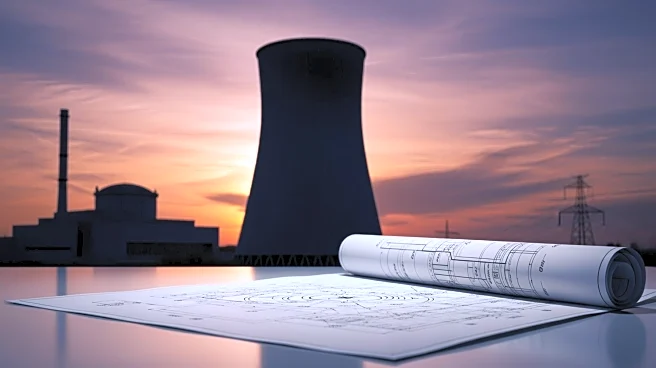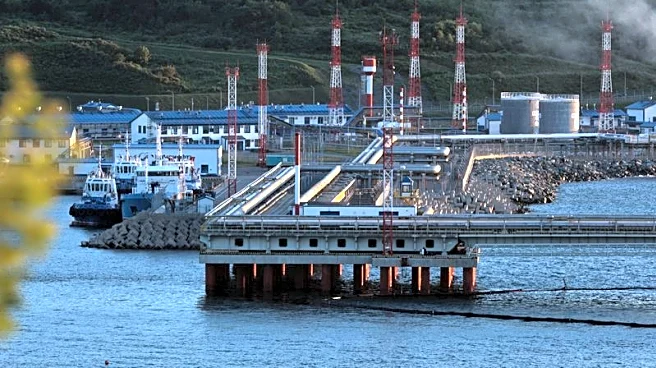What's Happening?
A government review in the UK has identified the country as the most expensive place in the world to develop nuclear power plants. The report, commissioned by Prime Minister Sir Keir Starmer, highlights the overly complex bureaucracy surrounding the sector,
which has led to conservative and costly decisions not proportionate to the actual risks being managed. The Nuclear Regulatory Taskforce has called for a radical reset in the government's nuclear strategy to make projects safer and more efficient, potentially saving Britain tens of billions in costs. The report describes the industry as near-monopolistic, with both civil and defense programs prone to large cost overruns and schedule delays. The UK government aims to build a new generation of nuclear plants to meet future energy needs and net zero targets.
Why It's Important?
The findings of the report are significant as they highlight the challenges faced by the UK in its pursuit of nuclear energy as a key component of its future energy strategy. The high costs and regulatory complexities could hinder the country's ability to meet its net zero targets and participate in the global nuclear renaissance. Simplifying regulation and enhancing safety standards could allow the UK to deliver nuclear capacity more safely, quickly, and affordably. This is crucial as the UK is among 30 countries that have pledged to triple their nuclear capacity by 2050 to cut carbon emissions. The aging nuclear reactors in the UK, with eight set to shut by 2030, further underscore the need for new plants to ensure energy security.
What's Next?
The UK government is expected to address the report's findings later this month in the Budget. The recommendations include establishing a 'one-stop' commission for nuclear decisions with unified decision-making powers. This could streamline the regulatory process and reduce costs. As several major economies reassess their nuclear strategies and expand capacity, the UK must act swiftly to avoid falling behind in the global nuclear renaissance. The development of new plants will take several years, but the government’s response to the report could set the stage for future advancements in the sector.
Beyond the Headlines
The report's call for a radical reset in the UK's nuclear strategy could have broader implications for the country's energy policy and its role in global efforts to combat climate change. By addressing the regulatory challenges and cost issues, the UK could position itself as a leader in nuclear energy innovation. This could also influence other countries facing similar challenges, potentially leading to a more collaborative approach to nuclear energy development worldwide.
















